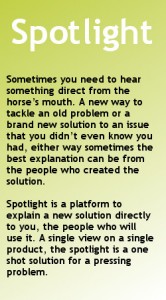We no longer go to work; it comes to us on a variety of devices. But as personal technology has changed work styles out of all recognition in the past decade, companies’ core communications technology has not always kept pace.

We collaborate more, we share content during meetings and we stay in contact through instant messaging. But can the humble PBX that has been the beating heart of many businesses’ communications for years match the power of personal smart devices? Can it cope with the demands of today’s always-on business?
“70% of Irish SMEs would now move a critical service to the cloud—something that would have been unthinkable a few years ago”
Irish SMEs know this dilemma all too well: 63% of them provide mobiles, tablets or desk phones to their employees, and 73% said they and their staff have a high to moderate level of flexibility where they work.
Yet 67% are concerned that poor communications infrastructure is costing them through missed business opportunities, and 61% say it can be difficult at times to coordinate communications with clients. One in four employees said they personally missed a call or email which would have led to or resulted in a missed business opportunity.
The findings come from a survey Vodafone carried out to understand the communications challenges facing Irish businesses, and to gain an insight into how SMEs in Ireland operate today.

Gerry McCourt, Vodafone (Image: Vodafone)
One encouraging trend is the increased trust and comfort in hosted solutions: 89% of businesses already use them, and 70% would now move a critical service to the cloud—something that would have been unthinkable a few years ago.
Trends like this have led us to launch Vodafone One Net Business, which allows companies of all sizes to combine all of their fixed-line, mobile and unified communications into a single solution, hosted locally in Ireland.
A fully converged solution, One Net Business allows customers to have a single fixed number and make or receive calls, or retrieve voicemails on their mobile, desk-phone, or the One Net Business app on their tablet or PC. Not only does it mean people miss fewer vital calls, but when a specific contact is offline, the call can route to a colleague so the business maintains the connection with that customer or prospect.
One Net Business is designed to be flexible to suit a company’s needs and can scale easily based on the number of users. The solution scales across a range of enterprises from SMEs right across to large multi-nationals. It is easily managed through a web interface which provides full control of the platform. This creates a considerable cost saving since most businesses could only achieve the same levels of management with a traditional PBX by having an in-house resource or by retaining an external third-party provider. Businesses can avail of further cost savings because One Net Business is delivered on an opex model, freeing valuable capital for other investments in the business.
One Net Business is suitable both to companies that already have an in-house unified communications system that needs upgrading, or businesses that have not yet adopted the technology. It is proven: it is already live in 30 countries with close to five million users. Customers in Ireland that have been trialling the technology already report reduced response times by up to 30 minutes. This improves customer service significantly, addressing one of the key concerns our survey highlighted.
Joanna Gilfoy, head of Product, and Gerry McCourt, head of One Net Business, Vodafone Ireland







Subscribers 0
Fans 0
Followers 0
Followers